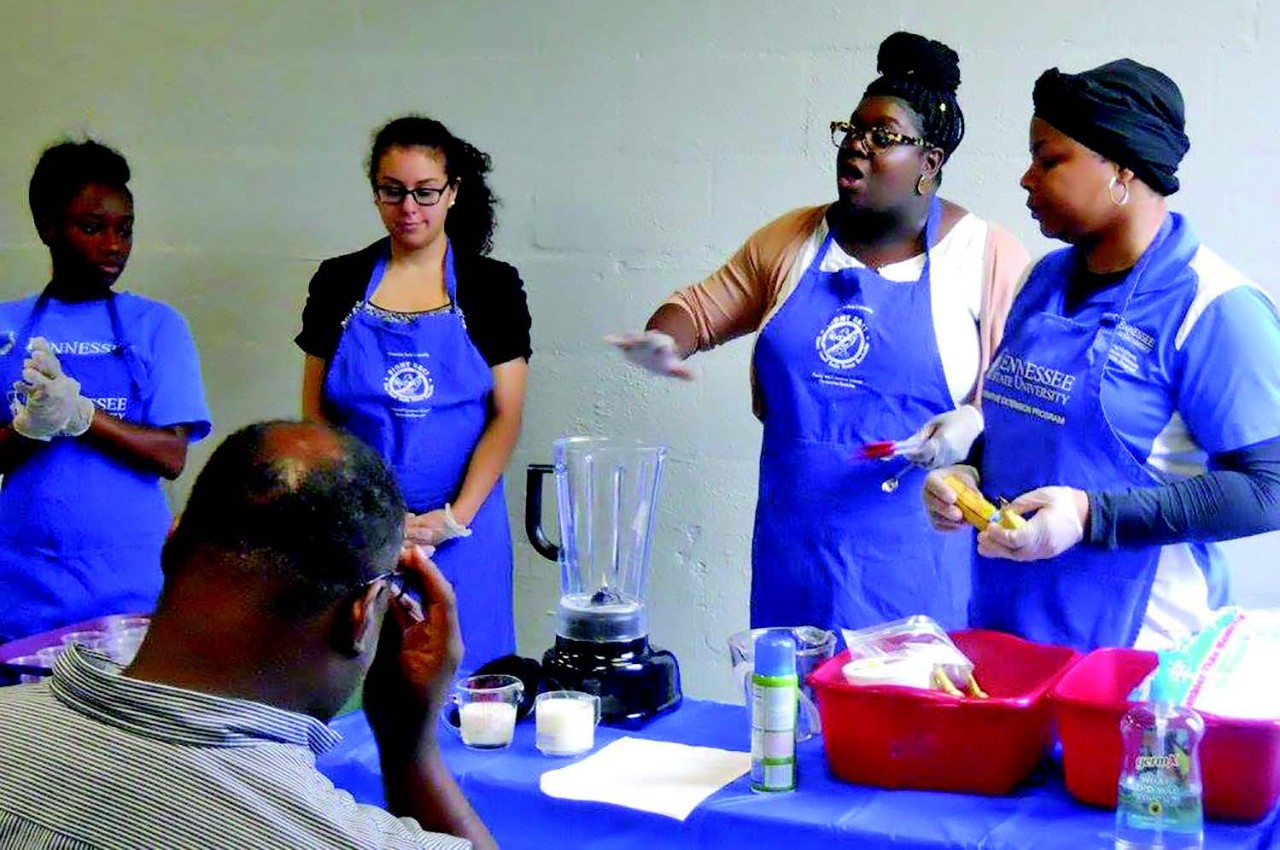Breaking Ground #90 - Helping People “Navigate Their World” - the TSU Extension Program
by Ned Andrew Solomon, Editor in Chief of Breaking Ground and Council Partners in Policymaking Director
University Extension is a nationwide educational network that aims to “extend” university expertise, research, information and education to families and communities across their state. Each U.S. state and territory has a state office at its land-grant university and a network of local or regional offices. Tennessee’s university extension state office is located within the University of Tennessee (UT). UT and Tennessee State University (TSU) administer together the Tennessee Cooperative Extension Service.
Traditionally, when most people think of University Extension programs, they think of training and resources around farming and agriculture. You might be surprised to learn, as the Council was, that Extension programs offer a host of educational opportunities for families in a number of areas, including health, nutrition, parenting, home economics, financial planning and saving, youth leadership, emergency preparedness, and more. While there are UT Extension offices located in all 95 counties of Tennessee, in nearly 50 of those counties there are also TSU Extension programs (with a focus on outreach to low-income or low-resource families). In these areas, both Extension networks frequently collaborate on conducting educational workshops and providing services. They connect families in their local communities to valuable training, education, information and resources.
The Council has been grateful to build a partnership with UT’s Extension network, specifically their Family and Consumer Sciences division, over the past couple of years, and this summer began to learn more about how TSU’s Extension network serves families in Tennessee. Council staff conducted training for Extension agents around disability sensitivity and shared resources their agents can share with families. UT Extension’s Statewide Human Development Specialist Heather Wallace presented to our Partners in Policymaking graduates about Extension programs. University Extension offices provide a way for us to connect with families who have members with disabilities at the local level and get information to families who may not otherwise be connected to the disability service system yet. Through these collaborative efforts and this article, we hope more members of the disability community will explore how they can connect to their local Extension programs to pursue creative ways to reach and serve Tennesseans with disabilities and their families.
A Look at TSU’s Extension Program
“We help consumers navigate their world,” said Leslie Speller-Henderson, Family and Consumer Sciences Program Leader for Tennessee State University. “Under that would be the food and nutrition side, the health education side, human development, family economics and home. These are all topics that staff, which I supervise, touch.”
Speller-Henderson also “touches” these topics, because she has to ensure that the information is being delivered to the public accurately and effectively. She also makes her staff aware of professional development opportunities, like conferences and trainings that will help them do their important work for Tennessee’s families.
And it’s a lot of information to keep current on. The area of Food and Nutrition is one of the most robust subjects. “We help families make healthy food choices,” explained Speller-Henderson. “Sometimes it’s within their limited dollar budget. Making healthy food choices can also help defend against certain diseases they might be dealing with that are food-related or health-related.”
The area of Health Education is primarily about health literacy – in other words, understanding the “language” of healthcare. “Take the Affordable Care Act,” said Speller-Henderson. “When the information came out about co-pays and deductibles, it was language that a lot of people who haven’t had insurance didn’t understand. We also educate about medications - how to take them, the interactions between different meds and the risks of taking too many meds.”
Living well with chronic diseases is another aspect of Health Education, as is, surprisingly, Emergency Preparedness. “Day care centers are one place we focus on that,” Speller-Henderson said. ”Helping teachers understand, when an emergency comes, how do you take care of that child in your care? They may need a backpack that has diapers in it, and the parents’ phone number. Sometimes day cares haven’t thought through that level of preparedness.”
Additionally, TSU Extension staff occasionally train in conjunction with the Red Cross around home/family escape plans, and meeting up in a safe location outside the home. They also promote having three days’ worth of water, cans with non-perishable foods and storing copies of vital records in a container that you can grab and go.
Home education courses are about using energy-saving strategies and making homes “healthier” and safer, including being aware of environmental contaminants and toxins. For Family Economics, TSU Extension staff try to help families increase their savings, and give guidance on spending limited funds wisely and planning for the future. A special program called “On My Own” targets teens who are anxious to move out of the family home but may not have a realistic picture of what they’ll have to have in place, and how much living independently can cost.
Human Development information and resources help families improve their parenting skills. “It’s different than it was when our parents or grandparents were raising us,” said Speller-Henderson. “There are many ‘21st century issues’, like decreasing screen time, and deciding what age is appropriate for a child to have an iPad or a cell phone. Should there be computers in the child’s bedroom, and are kids getting enough exercise, instead of being glued to their electronics?”
The topic also involves learning to interact with others, how to build relationships and, in general, strengthening the family. “We try to be aware of all the needs, from the cradle to the grave.”
For more information about the TSU Extension program, or to take advantage of their services and resources, visit http://www.tnstate.edu/extension/ for an Extension office nearest to you.